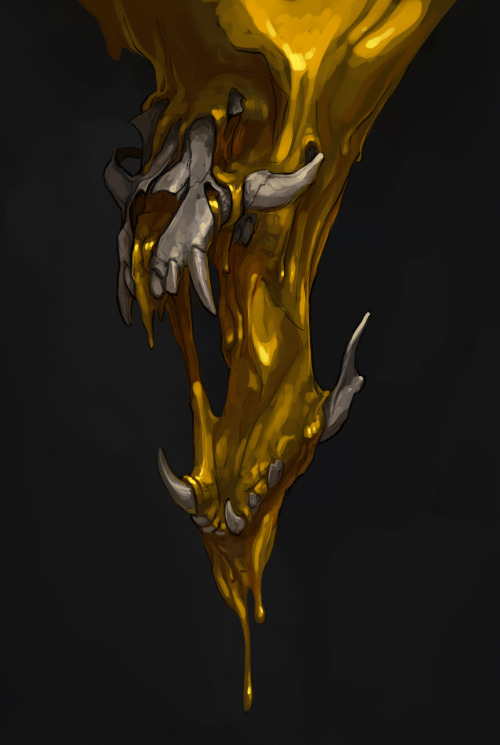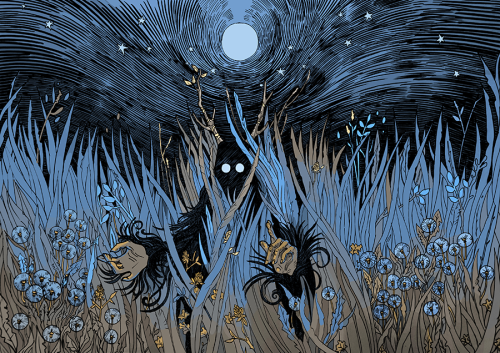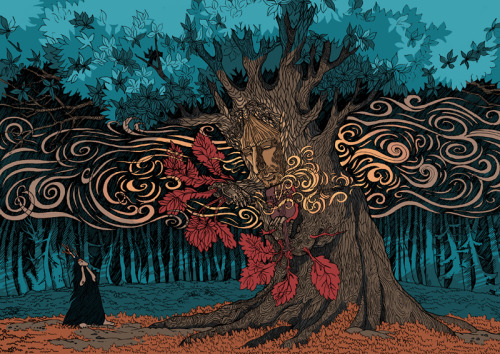It Is So Wild To Me The Fashions That Are Called “emo” Today. Especially Given The Fact That Probably
it is so wild to me the fashions that are called “emo” today. especially given the fact that probably 80-90% of it is actually scene, not emo. this would have started full on wars 15 years ago
More Posts from Saintedsorcery and Others

Werewolf History Project: Prehistory-
First part of a project looking at the history of werewolves and werewolf myths! Starting with early prehistory and the emergence of stories, especially the advent of animal/human figures.

Covet this.

“In Nomine Babalon” #witch #traditionalwitchcraft #pagan #paganism #goddess #babalon #folkwitch #rosary #prayerbeads #cunningwoman #sorcery #devotion #deity #deitywork #spiritwork https://www.instagram.com/p/Cio1IXtO4cp/?igshid=NGJjMDIxMWI=
When someone blogs about a spell, consecration, ritual or any personal magical or witchcraft work, they usually leave something out intentionally or unintentionally, said or unsaid. My first witchcraft teacher taught me to always add something to my spell work and especially if a spell had an even number of components to make it odd by addition. As a witch you need to make a spell your own, something that you and your spirits add to the mix. While most anybody can use a well made spell without edit to reasonable success, a witch tends to seal theirs with some personal flair. I have not heard this specific advice repeated by any of my subsequent craft teachers; however, it rings so true and perhaps sensible that I have always held it. Of course my subsequent teachers have emphasized making your own spells. So the emphasis on personalized witchcraft holds.
What do you think of Joyofsatan.org? They claim to follow the Sumerian God Enki-Satan, they’re pro-choice, they follow gay Pagan Gods and they’re the largest Satanist group in the world.
Well I’d never heard of them before now. I just did a quick look at their website and although they swear that Satanism isn’t a reaction to Christianity (which I disagree with because look at Anton LaVey) their homepage is just paragraphs of how “Judeo/Christianity” (those are two separate religions but okay) is evil and terrible and the source of everything wrong with the world. Just seems like they’re trying too hard. I also really disagree with their stance on Satanism being the oldest/truest religion in the world. It looks like they’re just slapping satanic aesthetics/concepts onto older religions and claiming it as truth which just historically isn’t the case.
Again this is all just initial reactions to their homepage, I know nothing about them on a deeper level and hadnt heard of them before today so take all that with a grain of salt I guess.
TIL that Aleister Crowley literally told people that he was the Beast from Revelations and all I could think about is how easily I could picture him as a controversial youtuber/tiktokker.

The Dark Hedges, Northern Ireland. Source

Here’s my contribution to the #regionalwitchcraftchallenge started by Via Hedera
.
.
.
So I wasn’t sure if I should have taken part in this because #Maine doesn’t really have anything (that I know of) that is specific to the region.
To make up for that, I try to incorporate as much of the local flora, fauna, and landscape as I can.
.
.
-Maine black bear skull, gifted from a local hunter
-Novena candle (one side of my family is Catholic and that has started to influence my craft)
-Locally harvested cedar
-Two keepsakes of my departed grandparents
-Birch Water (à la “An Carow Gwyn”) with bark harvest from my property
-An antique rosary found while thrifting
-A hag stone from the coast of Maine
-Selected bones from my casting kit that are all local animals (red fox, coyote, beaver, bobcat)
-An arrowhead from our state museum
-Ritual blade made from white-tail deer
.
.
.



by yanadhyana
VOCES MAGICAE
I’ve noticed a trend in modern magick that “the words don’t matter, only the intention” and this has never really been something that has sat well with me. If the words in spell craft “don’t matter” then why do we have such a long history of magickal words of power, incantations, prayers, liturgy and charms? The spoken word has always been one of the most potent forms or aspects of my magickal workings.
The last few years of working within Fayerie Traditionalism and the rites within “An Carow Gwyn” and “An Cawdarn Rudh” I’ve come into contact with barbarous names. Also called “voces magicae” these are words that are seemingly meaningless words that are supposedly magickal or powerful in nature. These words were/are usually bastardised words from languages that were not Greek or Latin. Incantations containing barbarous words come to us from The Greek Magical Papyri (Papyri Graecae Magicae or PGM), a collection of spells and rituals and liturgy from Greco-Roman Egypt. The power of these words comes not from any supposed meaning but from their sound of resonance. This can make employing them difficult because the magician must know the proper pronunciation. For this reason I am very thankful to Robin Artisson for giving phonetic spellings of any barbarous names (commonly referred to as “strange words” in the Fayerie Traditionalism material) used in rites and spells.
Other types of magickal words similar to these are ones Robin has given in “The Clovenstone Workings” the words of power given in that book are channeled words taught to him by the fayerie close to him. One such word is the word of the Gateway Ring: NURTANUMO. This word is in itself as spirit as well as an incantation. Speaking it correctly and with the correct ritual actions create a liminal space within which a sorcerer may commune with helpful and “friendly” spirits(I say friendly to mean that the word helps to keep out any spirit that might mean one harm or does not resonate with the purpose of ones magickal working). Along with NURTANUMO and other words of power given in “The Clovenstone Workings” they are accompanied by sigils formed by the letters of the word.
Another form of incantation or words of power that I want to start exploring is charms. I mean by this the spoken charms found in most forms of American folk magic. These re usually rhyming couplets that are believed to contain a power all their own, in some traditions though, one must be born a “charmer” to use them with any effect. Seeing as these come from forms of folk magic, many of these charms call upon the power of God, Jesus, the saints, apostles, or the Holy Trinity. Many pagans within the U.S. are coming into witchcraft and paganism from Christianity and carry with them some level of trauma. This in turn can cause hang ups of one kind or another when employing any types of magick that have any Christian trappings. I personally had these issues early on in my Path. Over time I came to a realisation that helped me (the following is UPG so take it accordingly) Power is Power. I personally believe that charms and and psalms that have a history of magickal use contain their own power that has been generated through belief. Generations of people spoke these words and believed in the power of them and so they have that power. Along that line of thinking is my belief that when I speak a charm it is not just me, but every person before me who spoke it for the same purpose. I am chanting and charming with the Ancestors and they bolster no only my Power but the Power of the charm. You can find collections of charms like this in the braucherei text “The Long Lost Friend”. Another source though not American is the “Carmina Gadelica” a collection of Scottish charms, hymns, prayers and lore. Gemma Gary as also written the “Charmer’s Psalter” a collection of psalms and biblical scripture used in English folk magic. (I do plan on getting my hands on all three of these eventually)
One last note on rhyming charms. I’ve seen a an explanation for rhyming couplets being used in magick as a way to enter into light trances to work magick. You write or find a charm that aligns with your purpose, and chanting it helps to “set your intention’ as you slip into trance. As far as I can tell this is a relatively modern explanation for their Power, it is however no less of an effective method. I have used this technique to help me enter trance, more specifically the level of trance I want when using glossolalia; speaking in tongues (another potent and powerful form of spoken word magick).
Looking back at the idea of belief giving words power. This idea is why I think it is possible to use incantations from media and pop culture in actual spell work. There are cases where a tv show or book will take a pre-existing spell or incantation and reword it slightly to fit the show or scene. In this case the ritual action accompanied by the spoken spell can have great effect. In other cases if you know how the spell operates within the fictional universe, this can signal your own spirit and those spirits you work with what you want to achieve. One personal experience I have with this is using the lost and found spell from Charmed. Anytime I employ this spell I fix an image of the object in my mind, breathe deeply, recite the spell three times, and then set the spell with a sharp clap and a “so mote it be”. In this way I’m not simply reciting the spell and expecting things to appear as happens in the show. I use the incantation in conjunction with real world magickal techniques and have always gotten positive results. Once I do this spell and continue searching I will often find the lost object within an hour, sometimes a day at most.
Regardless of your views on words in magick I think it does our history and Ancestors a disservice to simply dismiss them as an arbitrary or useless aspect of magickal practice.
-
 howlatabluemoon reblogged this · 2 days ago
howlatabluemoon reblogged this · 2 days ago -
 knipperdollin reblogged this · 3 days ago
knipperdollin reblogged this · 3 days ago -
 space-n-reblogs-n-shit reblogged this · 4 days ago
space-n-reblogs-n-shit reblogged this · 4 days ago -
 gorgonsrage liked this · 4 days ago
gorgonsrage liked this · 4 days ago -
 queencringefangirl reblogged this · 4 days ago
queencringefangirl reblogged this · 4 days ago -
 fernacular liked this · 5 days ago
fernacular liked this · 5 days ago -
 informangolin liked this · 5 days ago
informangolin liked this · 5 days ago -
 lilm31 reblogged this · 5 days ago
lilm31 reblogged this · 5 days ago -
 sunsetcowboy liked this · 5 days ago
sunsetcowboy liked this · 5 days ago -
 nofuckingfighting-mp4 reblogged this · 5 days ago
nofuckingfighting-mp4 reblogged this · 5 days ago -
 fueledbyseggovia liked this · 5 days ago
fueledbyseggovia liked this · 5 days ago -
 rain--pitter-patters reblogged this · 5 days ago
rain--pitter-patters reblogged this · 5 days ago -
 rain--pitter-patters liked this · 5 days ago
rain--pitter-patters liked this · 5 days ago -
 incredits reblogged this · 5 days ago
incredits reblogged this · 5 days ago -
 camillahect liked this · 5 days ago
camillahect liked this · 5 days ago -
 me-and-sweatpants reblogged this · 5 days ago
me-and-sweatpants reblogged this · 5 days ago -
 me-and-sweatpants liked this · 5 days ago
me-and-sweatpants liked this · 5 days ago -
 thebiafalex reblogged this · 5 days ago
thebiafalex reblogged this · 5 days ago -
 topographical-map-of-utah liked this · 5 days ago
topographical-map-of-utah liked this · 5 days ago -
 acenerdsbian reblogged this · 5 days ago
acenerdsbian reblogged this · 5 days ago -
 acenerdsbian liked this · 5 days ago
acenerdsbian liked this · 5 days ago -
 corvidfeathers liked this · 5 days ago
corvidfeathers liked this · 5 days ago -
 frumpkinspocketdimension reblogged this · 5 days ago
frumpkinspocketdimension reblogged this · 5 days ago -
 imjustinitforthe-laughs reblogged this · 5 days ago
imjustinitforthe-laughs reblogged this · 5 days ago -
 imjustinitforthe-laughs liked this · 5 days ago
imjustinitforthe-laughs liked this · 5 days ago -
 husbandida liked this · 5 days ago
husbandida liked this · 5 days ago -
 celticdevil90 reblogged this · 5 days ago
celticdevil90 reblogged this · 5 days ago -
 ontari reblogged this · 5 days ago
ontari reblogged this · 5 days ago -
 earthyumgiggles reblogged this · 6 days ago
earthyumgiggles reblogged this · 6 days ago -
 brigetmiget reblogged this · 6 days ago
brigetmiget reblogged this · 6 days ago -
 brigetmiget liked this · 6 days ago
brigetmiget liked this · 6 days ago -
 earthyumgiggles liked this · 6 days ago
earthyumgiggles liked this · 6 days ago -
 earthyumgiggles reblogged this · 6 days ago
earthyumgiggles reblogged this · 6 days ago -
 scrungly420 reblogged this · 1 week ago
scrungly420 reblogged this · 1 week ago -
 arulyth liked this · 1 week ago
arulyth liked this · 1 week ago -
 heretopasstimebi liked this · 1 week ago
heretopasstimebi liked this · 1 week ago -
 bolshevik-rpf reblogged this · 1 week ago
bolshevik-rpf reblogged this · 1 week ago -
 amyssecretgalaxy2 reblogged this · 1 week ago
amyssecretgalaxy2 reblogged this · 1 week ago -
 eelzebub-artz reblogged this · 1 week ago
eelzebub-artz reblogged this · 1 week ago -
 midnightopal13 liked this · 1 week ago
midnightopal13 liked this · 1 week ago -
 walkasunder reblogged this · 1 week ago
walkasunder reblogged this · 1 week ago -
 theunseeliemperoress liked this · 1 week ago
theunseeliemperoress liked this · 1 week ago -
 lilu-the-almighty reblogged this · 1 week ago
lilu-the-almighty reblogged this · 1 week ago -
 lilu-the-almighty liked this · 1 week ago
lilu-the-almighty liked this · 1 week ago -
 plaudiusplants reblogged this · 1 week ago
plaudiusplants reblogged this · 1 week ago -
 snivelgear liked this · 1 week ago
snivelgear liked this · 1 week ago -
 f4nd0ms-g410r reblogged this · 1 week ago
f4nd0ms-g410r reblogged this · 1 week ago -
 spacegravedoodles reblogged this · 1 week ago
spacegravedoodles reblogged this · 1 week ago -
 greysigil reblogged this · 1 week ago
greysigil reblogged this · 1 week ago -
 leafyeras liked this · 1 week ago
leafyeras liked this · 1 week ago
